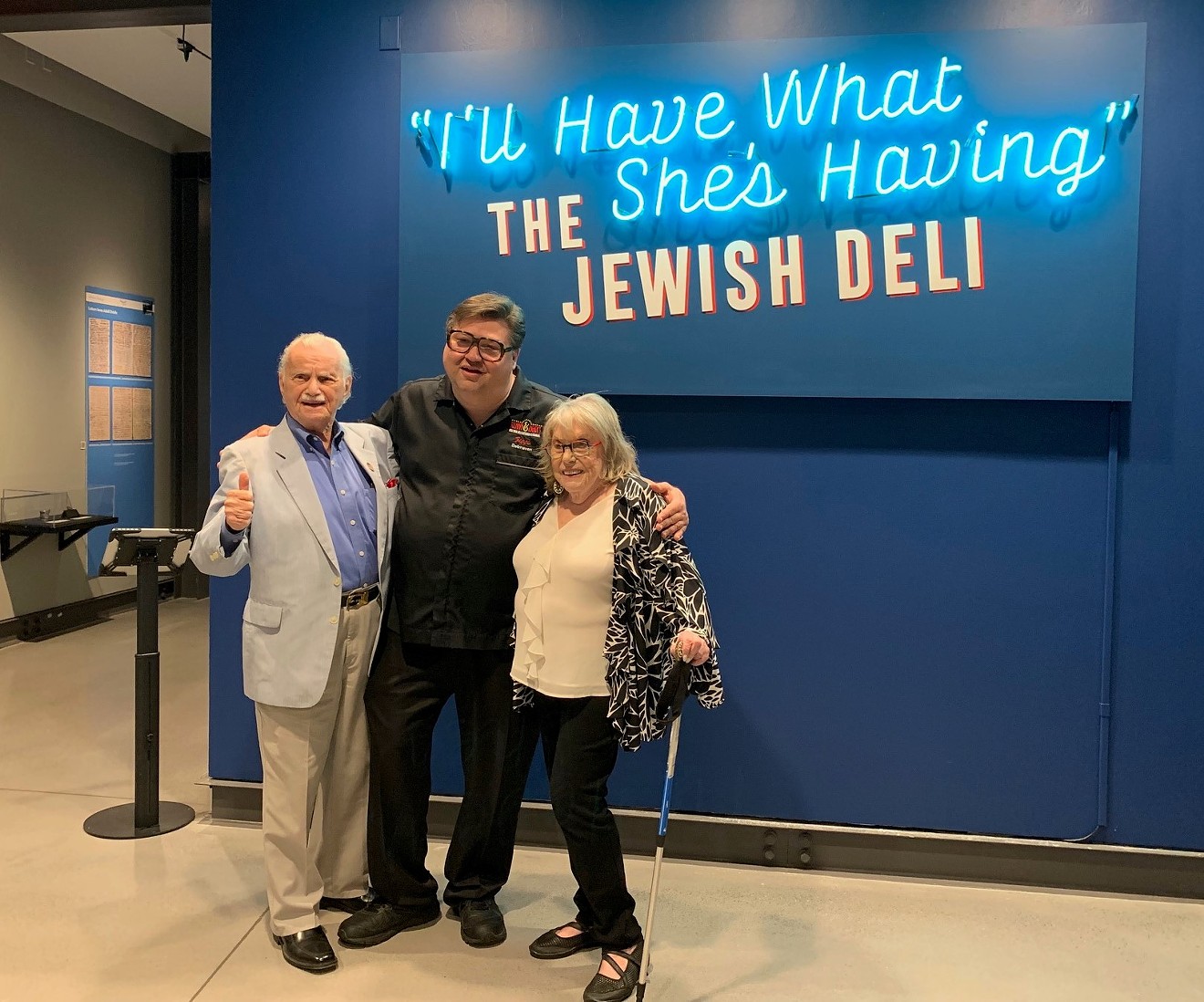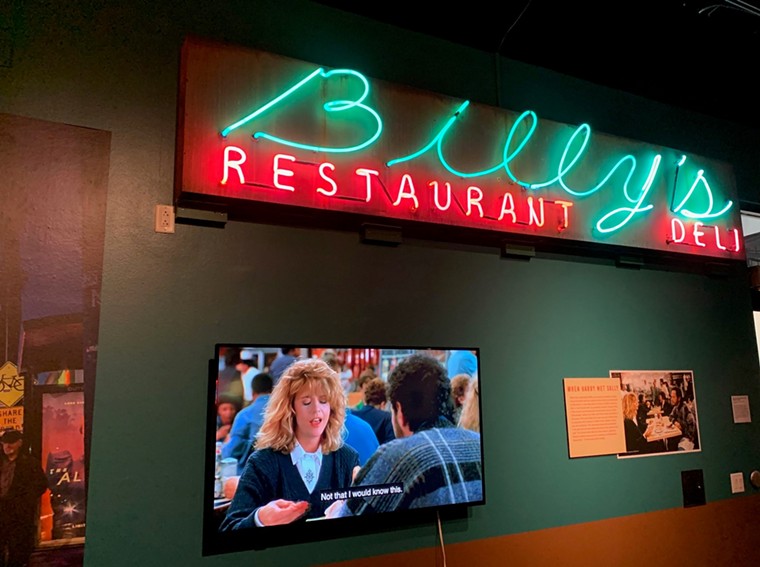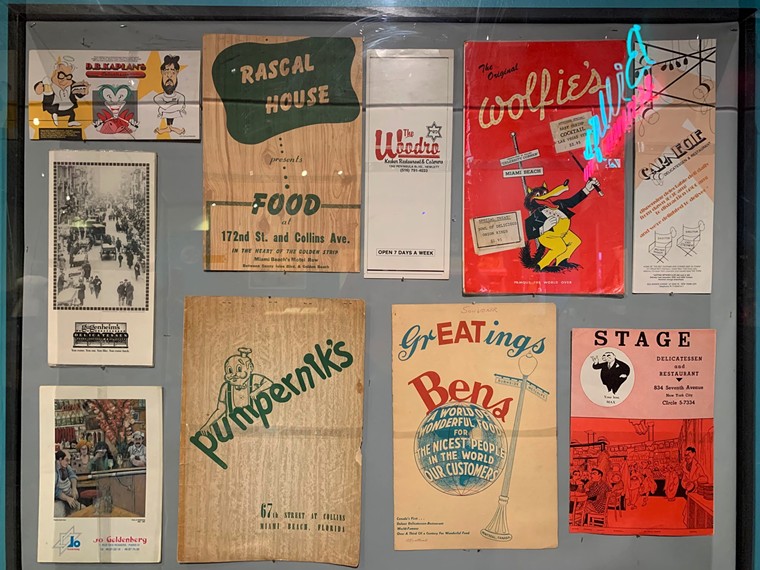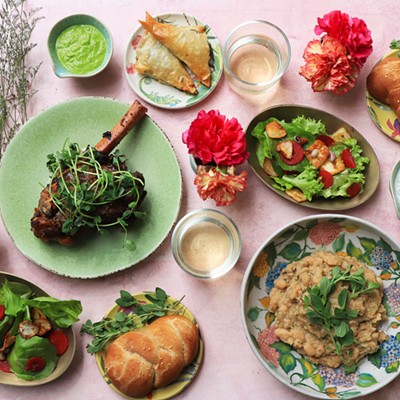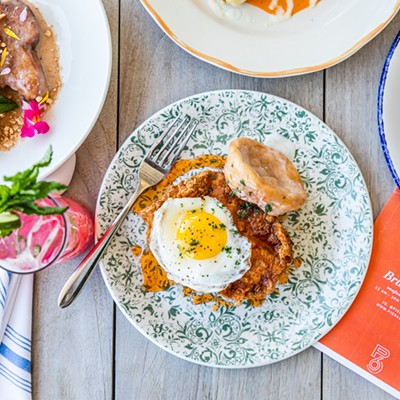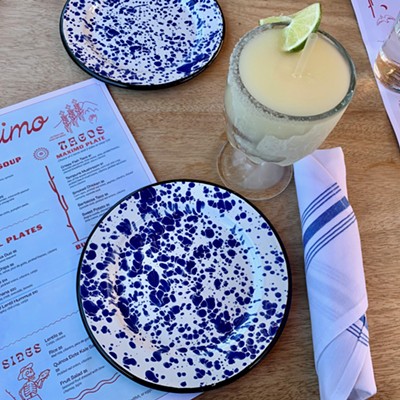Houston has the fourth largest Holocaust museum in the United States, dedicated to educating the public about the horrors of genocide while showcasing the resilience of the human spirit. While a tour of the museum can be an emotional experience, there are also happy moments in Jewish history and also delicious ones, especially the birth of the Jewish delicatessen.
The museum is hosting an exhibit May 5 through August 13 that pays tribute to the culinary institution. It's titled "I'll Have What She's Having": The Jewish Deli, a nod to the infamous scene from When Harry Met Sally in which Meg Ryan's character fakes an orgasm in the middle of Katz's Deli.
In the mid-1800s, German immigrants to the United States began to open storefronts similar to the delikatessens that existed in their native country. That wave of German immigrants introduced Americans to the cured meats, sausages and frankfurters of their homeland. In the 1880s, Jewish immigrants began to open delicatessens in New York City, many of them keeping kosher while also introducing foods that were traditional to Jewish cuisine, providing places where families could get the products and special dishes for celebrating Jewish holidays.
Most experts agree that New York City's Katz's Delicatessen was the first Jewish deli to open in the U.S. though it was founded as Iceland Brothers before being renamed Iceland and Katz, with Willy Katz entering the business in 1903. He was joined by his cousin Benny in 1910 and the duo bought out the Iceland brothers, renaming the store Katz's Delicatessen.
Eventually, there would be Jewish delicatessens popping up in metropolitan cities like New York City, Chicago, Los Angeles and Houston and then into smaller cities. Unfortunately, the Jewish delicatessen has been on the decline over the years, some of it due to high food costs and changing tastes.
One of the most ardent advocates of the Jewish deli is David "Ziggy" Gruber who most Houstonians know as owner of Kenny & Ziggy's New York Delicatessen and Restaurant. The restaurant and deli has been serving Houstonians massive sandwiches and celebratory Jewish dishes for over two decades.
Gruber is a famous face, not only in Houston, but across the country as well. In 2015, he was the unplanned star of the documentary film Deli Man, showcasing delis across the country with popular celebrities like Jerry Stiller and Larry King making appearances. The film, directed by Erik Anjou, will be screened at the Holocaust Museum later this summer.
For the new exhibit, which was first curated at the Skirball Cultural Center in Los Angeles, Gruber lent many of his own pieces of deli memorabilia such as posters, menus and matchbooks from the decades of the Jewish deli's heyday.

A montage of photos celebrates Gruber's family history in the deli world.
Photo by Lorretta Ruggiero
In a recent media preview at the Holocaust Museum Houston, Gruber described his early restaurant career working in Michelin-starred restaurants with the likes of Gordon Ramsay and Marco Pierre White. However, it wasn't where his heart lay.
For Gruber, the decline in the number of Jewish delicatessens was a painful thing to see. As he watched the older generations age, he thought, " Who is going to perpetuate this cuisine? Who is going to continue the delicatessen?" Gruber says that's when he found his calling.

An advertising campaign from the 1960s and 70s touts the tastiness of Levy's Jewish Rye.
Photo by Lorretta Ruggiero
We fortunate ones at the preview were able to sample some of the homey dishes that have made K&Z's so popular. The food was also a sampling of Jewish cuisine that has crossed the Atlantic such as stuffed cabbage rolls and chopped liver plus items like pastrami which made its way to the United States via Romanian Jewish immigrants. There were sweet samples of two famous desserts at Kenny & Ziggy's, an incredibly creamy, dreamy cheesecake and Blackout Cake, a chocolate cake done in the style of Ebinger's, a now-shuttered Brooklyn institution.

Orlin, Gruber and Steinfeld stand in front of the recognizable neon sign.
Photo by Lorretta Ruggiero
After filling ourselves on delicious food like the Nova lox that is house-made at Kenny and Ziggy's, Gruber led us through the exhibit which included a huge neon sign of Kenny & Ziggy's. Another neon sign of Billy's Restaurant & Deli glowed above a television streaming the infamous scene from When Harry Met Sally.
Gruber's collection of old menus runs the gamut of long-gone delis from New York to Miami Beach and even Canada. There are some vintage employee uniforms plus a mid-century cigarette machine from Canter's Deli. Advertising posters and matchbooks add to the colorful history.
Amid all the memorabilia, Gruber bemoaned the whittling down of thousands of Jewish delicatessens to just a few hundred. He told the attendees that he wished younger Jewish Americans would embrace their culture more. Of course, it's not only history that affects generational attitudes but also the undercurrents of anti-Semitism that still inexplicably course through the veins of modern society.

A WWII slogan for Katz's Deli when the owners' sons were serving in the armed forces.
Photo by Lorretta Ruggiero
Gruber told a story of an elderly man, a Holocaust survivor, who wept as he tasted the stuffed cabbage rolls at Kenny & Ziggy's when it first opened. Gruber asked the man if he was okay. He replied, "I haven't had stuffed cabbage like this since my mother made this for me."
She was one of the many concentration camp victims to be sent to the crematorium.
Gruber said, "When you can give someone the memory of a bubbe, a mother... it's everything."
"I'll Have What She's Having" : The Jewish Deli
Holocaust Museum Houston
Josef and Edith Mincberg Gallery
5401 Caroline
713-942-8000
hmh.org

